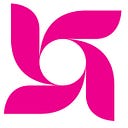Meeting Basic Needs of the World’s Poorest During a Time of Crisis: Part I — The Good Feed
by Rozina Haque, UPG Programme Head and Upoma Mahbub, UPG Programme Advocacy Manager
Before Coronavirus (COVID-19) turned our world inside out, many of the world’s poorest already lacked the fundamental necessities to survive. They were without sufficient skills and resources to feed or educate their children, assets like livestock to build a livelihood, and health care to provide for their basic welfare — putting them at the mercy of preventable and infectious diseases. To make matters worse, the poorest, or ultra-poor, typically live on the margins of society, so isolated and excluded that traditional development programmes fail to reach them. With a pandemic rapidly infecting people in every corner of the world and forcing closures on much of society including businesses, transportation, and even entire communities, this hard-to-reach population is more vulnerable than ever. BRAC, an organisation committed to helping people lift themselves from extreme poverty through our Graduation approach, is swiftly adapting to address the increasing vulnerability of the ultra-poor and ensure their basic needs are met.
In Bangladesh, where BRAC was founded and has been implementing the Ultra-Poor Graduation Programme (UPG) since 2002, we started preparing our response before the nation was even hit by the pandemic. Though regular Graduation activities have stopped, UPG staff continue to support participating households by raising awareness of health and hygiene topics, as well as providing hands-on-training on hand washing and other hygienic best practices. Staff are still making their regularly scheduled home visits, but keeping a safe distance, shortening their time spent, and maintaining strict protective measures. Rather than the regular practice of discussing various life skills and business issues, the home visits are now focused on raising awareness of and social stigma around COVID-19. Home visits also provide an opportunity to distribute hygiene products along with physical copies of guidelines to those most in need or without access.
Additionally, in order to better protect staff and provide quick healthcare guidance to the communities they serve, BRAC has just launched an app called Coronarodh App, dedicated to COVID-19 screening. The tool provides recommendations and next steps based on the results of its symptom questionnaire and offers guidance on when to seek medical care and what to do in the meantime.
But the health of our participating households is not the only thing threatened during this pandemic. As Asif Saleh, Executive Director of BRAC, recently stated, “COVID-19 is a humanitarian crisis with a public health dimension. In countries like Bangladesh, it also has a dire economic consequence. Because this is a global crisis, people everywhere are out of work. Income has stopped.”
For this reason, participants continue to receive cash stipends and are still able to access and withdraw from their group savings funds in the event of health emergencies or dire economic hardship, providing an additional measure of mitigation during these economically uncertain times. To provide further economic support to those already living in extreme poverty, BRAC has reallocated $1.76 million USD for low-income families in urban slums, semi-urban, and hard-to-reach areas whose livelihoods have been impacted by the social distancing measures enforced as a result of the COVID-19 pandemic. Approximately $1,400BDT ($17USD) — enough to cover a few weeks of food for a household — will be provided to each family as an emergency food assistance fund, initially covering more than 100,000 households within various BRAC programmes including the UPG. To those hit the hardest by the economic effects of lockdown, staff are able to create linkages to local government and union parishad’s, the smallest, rural administrative units in Bangladesh, for additional government support — such as rice, oil, hygiene products and extra cash stipends.
We are making similar adjustments in countries outside of Bangladesh to ensure our Graduation participants receive continued support and have adopted alternative ways to share important information to help build their resilience during this time. We will explore the other ways in which Graduation programmes are responding to COVID-19 in order to continue meeting basic needs of the world’s poorest in Part II of this series, focusing on programmes in the Philippines and Uganda and their increased usage of technology and early-warning communications.
Originally published at http://blog.brac.net on April 6, 2020.
